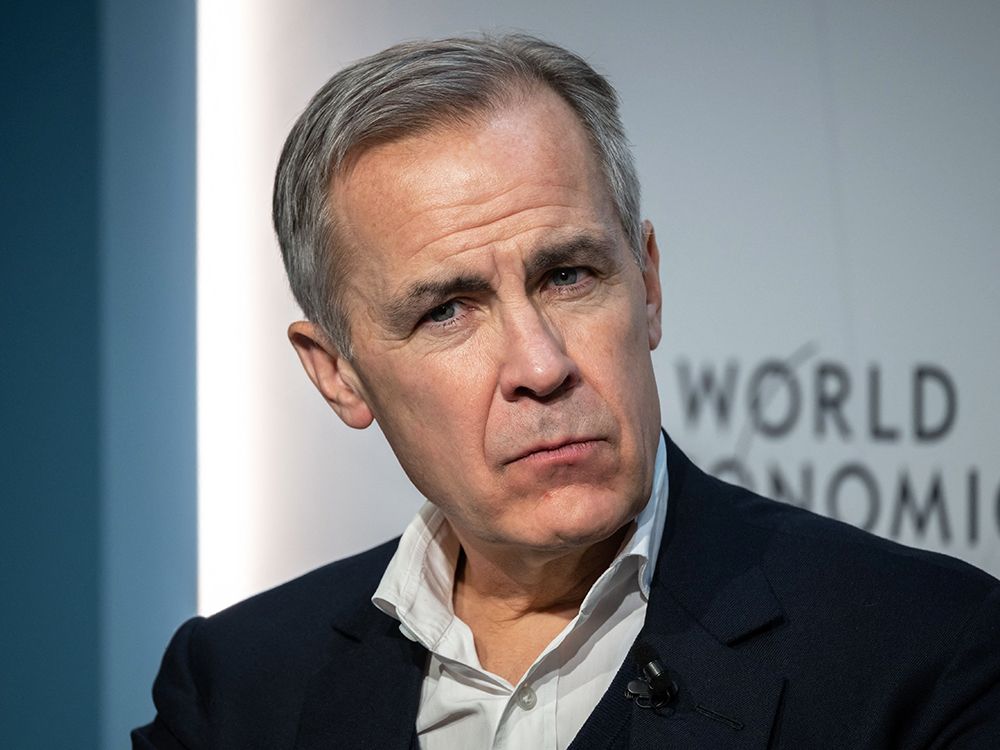Carney On US-Canada Trade: A Strategic Delay?

Table of Contents
Economic Implications of a Delayed Approach to US-Canada Trade
A delayed approach to resolving trade issues between the US and Canada carries significant economic consequences. The intricate web of bilateral trade, deeply interwoven into both nations' economies, is vulnerable to disruption.
Impact on Supply Chains
Delays in trade agreements or negotiations can severely disrupt established supply chains. This translates to tangible negative impacts:
- Increased transportation costs: Uncertainty leads to logistical complexities and higher shipping fees.
- Potential for shortages: Disruptions in the flow of goods can cause shortages, impacting consumers and businesses.
- Impact on specific industries: Sectors like automotive manufacturing and agriculture, heavily reliant on cross-border trade, are particularly vulnerable. A slowdown in the automotive industry, for example, could trigger job losses and ripple effects across the supply chain.
Investment Uncertainty
The uncertainty surrounding US-Canada trade negotiations significantly impacts foreign direct investment (FDI).
- Reduced investment confidence: Businesses hesitate to commit to large-scale investments when the future of trade relations remains unclear.
- Postponed projects: Expansion plans and new ventures are put on hold, hindering economic growth.
- Impact on job creation: Delayed investments translate directly into fewer job opportunities in both countries.
Economic Growth Projections
A protracted delay in addressing trade issues negatively impacts economic growth projections for both the US and Canada.
- GDP impact: Reduced trade volume and investment directly affect GDP growth rates.
- Employment figures: Job creation slows down, potentially leading to higher unemployment rates.
- Potential for trade deficits: Disruptions can lead to imbalances in trade, resulting in deficits for one or both countries.
Political Considerations and the Carney Perspective
Understanding Mark Carney's perspective requires examining his role and the broader political landscape surrounding US-Canada trade.
Carney's Role and Influence
Mark Carney's extensive experience in central banking and finance grants him significant influence:
- Past experience: His background provides valuable insights into the economic implications of trade policies.
- Current position: His current role allows him to shape discussions and influence policy decisions.
- Potential influence on policy decisions: His opinions and analyses are closely followed by policymakers on both sides of the border.
Political Pressure and Negotiations
Domestic political pressures significantly impact trade negotiations:
- Potential lobbying groups: Powerful interest groups can exert considerable pressure on governments to adopt specific trade policies.
- Public opinion: Public sentiment towards trade agreements can influence political decisions.
- Election cycles: The timing of elections can affect the urgency and approach to trade negotiations.
International Relations Implications
US-Canada trade relations have far-reaching implications:
- Impact on NAFTA/USMCA: Any significant changes or delays can affect the implementation and future of the USMCA.
- Relations with other trading partners: The relationship between the US and Canada serves as a model for other bilateral agreements and international trade organizations.
Long-Term Effects of a Delayed Strategy in US-Canada Trade
A prolonged delay in resolving trade issues poses severe long-term risks:
Potential for Future Trade Disputes
Unresolved issues can escalate into significant trade disputes:
- Retaliatory tariffs: One country might impose tariffs on goods from the other in response to perceived unfair trade practices.
- Trade barriers: New trade barriers could be erected, further hindering trade flows.
- Legal challenges: Disputes may end up in international courts or arbitration panels, leading to lengthy and costly legal battles.
Erosion of Trust
Delays and unresolved issues can damage the bilateral relationship:
- Impact on future collaborations: A lack of trust makes future collaborations more difficult.
- Trust in agreements: Repeated delays can undermine confidence in the stability and reliability of trade agreements.
Opportunities Missed
Delayed action means missed opportunities for economic growth and development:
- Missed investments: Businesses may forgo investments due to uncertainty.
- Innovation stifled: Uncertainty can hinder innovation and technological advancement.
- Lost market share: Delays can allow competitors from other countries to gain a competitive edge.
Conclusion: Understanding the Strategic Delay – The Future of US-Canada Trade
Mark Carney's approach to US-Canada trade raises critical questions about the potential consequences of any delay. While a measured approach might allow for more thorough consideration of various aspects, prolonged uncertainty poses significant economic and political risks. The potential for disruptions to supply chains, reduced investment, slower economic growth, and escalating trade disputes are real and concerning. The long-term erosion of trust and the missed opportunities for collaboration represent substantial costs. Continued monitoring of Carney's stance on US-Canada trade and its potential impacts on the bilateral trade agreement is crucial. We urge readers to stay informed and engage in further discussions on this vital topic, shaping a future where the strategic partnership between the US and Canada flourishes. The future of US-Canada trade depends on addressing these challenges proactively and decisively.

Featured Posts
-
 Abu Dhabi Open Belinda Bencics Post Maternity Final
Apr 27, 2025
Abu Dhabi Open Belinda Bencics Post Maternity Final
Apr 27, 2025 -
 Human Centered Ai A Conversation With Microsofts Design Lead
Apr 27, 2025
Human Centered Ai A Conversation With Microsofts Design Lead
Apr 27, 2025 -
 How Trumps Presidency Will Shape Zuckerbergs Leadership At Meta
Apr 27, 2025
How Trumps Presidency Will Shape Zuckerbergs Leadership At Meta
Apr 27, 2025 -
 Patrick Schwarzeneggers Unseen Ariana Grande Music Video Appearance A White Lotus Connection
Apr 27, 2025
Patrick Schwarzeneggers Unseen Ariana Grande Music Video Appearance A White Lotus Connection
Apr 27, 2025 -
 Real Life Sisters To Star In Werner Herzogs New Film Bucking Fastard
Apr 27, 2025
Real Life Sisters To Star In Werner Herzogs New Film Bucking Fastard
Apr 27, 2025
Latest Posts
-
 Ftcs Appeal Challenges Microsofts Activision Blizzard Acquisition
Apr 28, 2025
Ftcs Appeal Challenges Microsofts Activision Blizzard Acquisition
Apr 28, 2025 -
 Future Of Microsoft Activision Merger Uncertain After Ftc Appeal
Apr 28, 2025
Future Of Microsoft Activision Merger Uncertain After Ftc Appeal
Apr 28, 2025 -
 Microsoft Activision Deal Ftcs Appeal And What It Means
Apr 28, 2025
Microsoft Activision Deal Ftcs Appeal And What It Means
Apr 28, 2025 -
 Ftc Appeals Activision Blizzard Acquisition Microsoft Deal In Jeopardy
Apr 28, 2025
Ftc Appeals Activision Blizzard Acquisition Microsoft Deal In Jeopardy
Apr 28, 2025 -
 Ray Epps Sues Fox News For Defamation January 6th Falsehoods At The Center Of The Case
Apr 28, 2025
Ray Epps Sues Fox News For Defamation January 6th Falsehoods At The Center Of The Case
Apr 28, 2025
